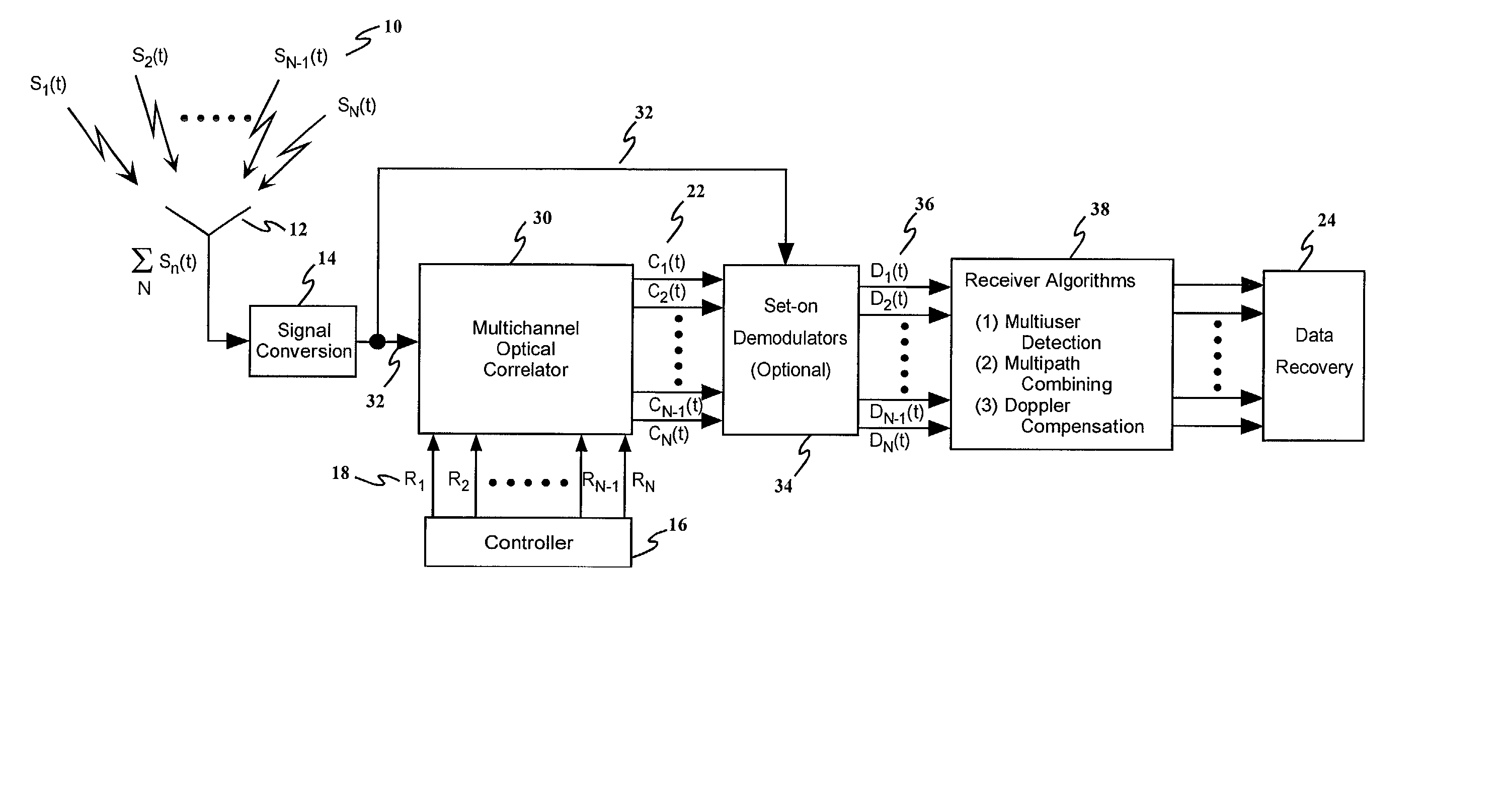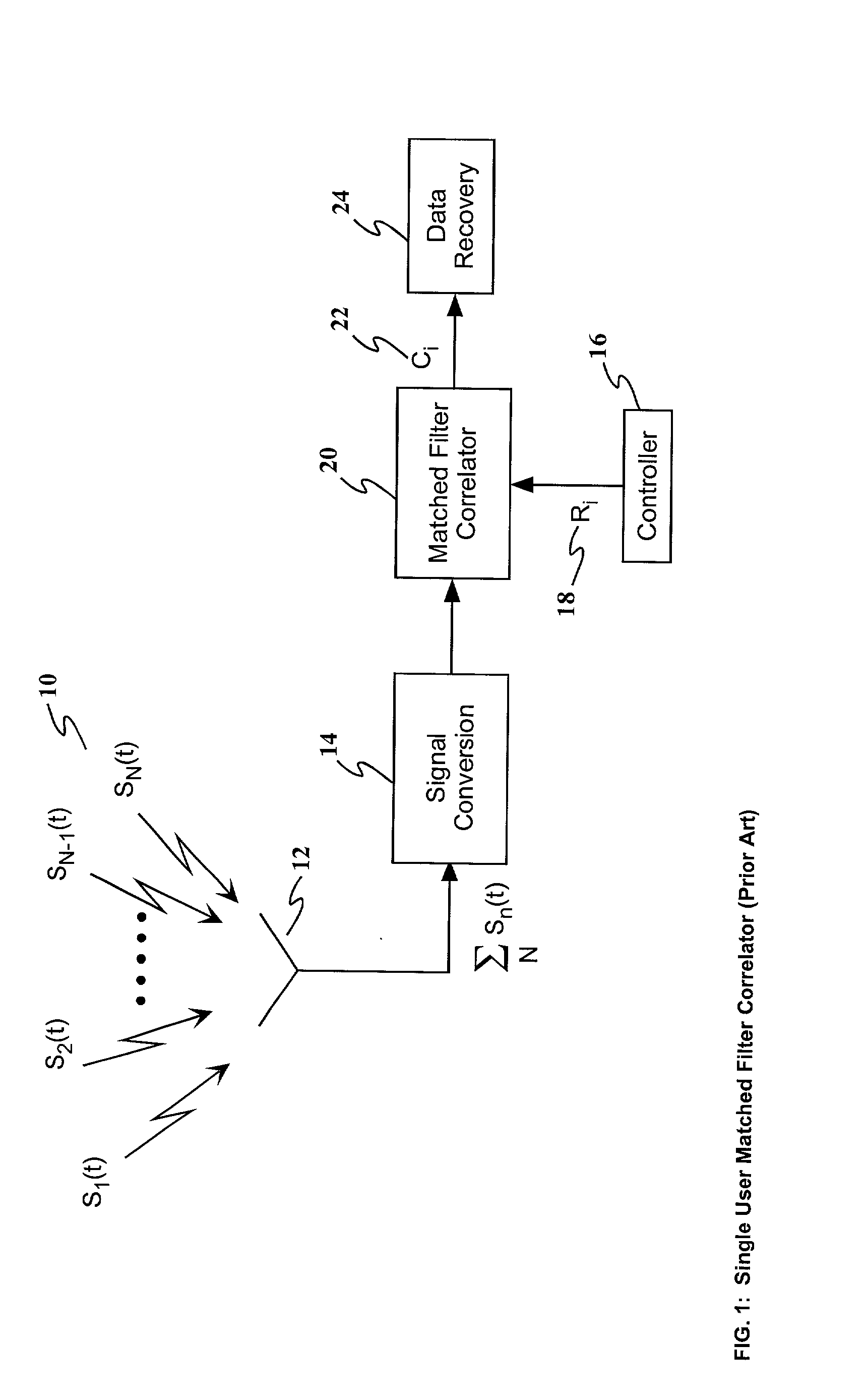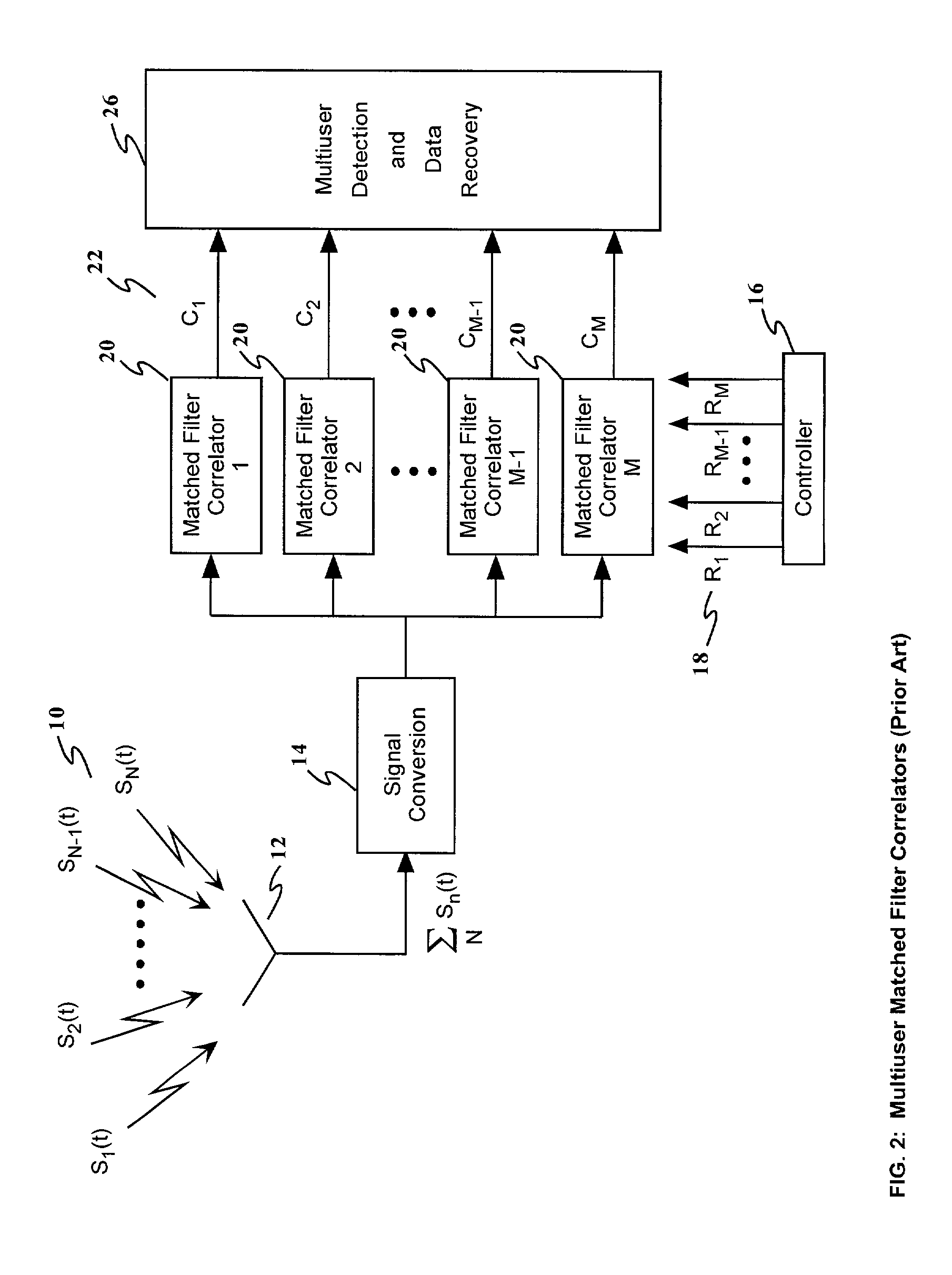Optical processor enhanced receiver architecture (opera)
- Summary
- Abstract
- Description
- Claims
- Application Information
AI Technical Summary
Benefits of technology
Problems solved by technology
Method used
Image
Examples
Embodiment Construction
[0045] The following detailed description is of the best presently contemplated modes of carrying out the present invention. This description is not to be taken in a limiting sense, but is made merely for the purpose of illustrating the general principles in accordance with the present invention. The scope of the present invention is best defined by the appended claims.
[0046] The present invention may be very useful in spread spectrum (SS) communications systems, that is, communications systems in which the transmission band is greater than signal bandwidth. The present invention is considered to have particular utility in spread spectrum Code Division Multiple Access (CDMA) systems, and most particularly in Direct Sequence Spread Spectrum CDMA (DS / SS CDMA) systems (see Additional Technical Background, below). The present invention may be applied in other spread spectrum systems as well, including, but not limited to, Frequency Hop, OFDMA, Hybrid Frequency Hop, Ultra Wideband (UWB),...
PUM
 Login to View More
Login to View More Abstract
Description
Claims
Application Information
 Login to View More
Login to View More - R&D
- Intellectual Property
- Life Sciences
- Materials
- Tech Scout
- Unparalleled Data Quality
- Higher Quality Content
- 60% Fewer Hallucinations
Browse by: Latest US Patents, China's latest patents, Technical Efficacy Thesaurus, Application Domain, Technology Topic, Popular Technical Reports.
© 2025 PatSnap. All rights reserved.Legal|Privacy policy|Modern Slavery Act Transparency Statement|Sitemap|About US| Contact US: help@patsnap.com



